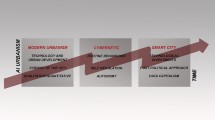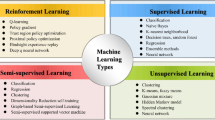Abstract
Historically, the dynamic between philosophy of artificial intelligence and its practical application has been essential for the development of both, and thus the encounter between theory of AI and architectural/urban theory should be a site of considerable productivity. However, in many ways, it is not. This is due to two primary factors, one arising from each side of this encounter. First, legacies of overly-anthropomorphic models of AI permeate design discourses, where issues of how well AI can be constrained to social issues of philosophy of mind exclude more foundational and cross-cultural questions about artificial intelligence as material process in the physical world that could inform new philosophical insights. Concurrently, the mobilization of investment in “Smart Cities” discourses dominates the space of application of AI at urban scale in ways that prematurely fixes solutions in the skeuomorphic image of architectural and urban conventions. To break this impasse, we held a series of think-tanks, workshops, and design charettes that brought together leading figures in philosophy of artificial intelligence, urban design, and commercial AI platforms. The goal was to re-think from first principles how alternative philosophical models of AI as a distributed, discontinuous, landscape-scale technology in a direct encounter with the applications in contexts of ecological sensing, automation’s impact on urban form, and issues of algorithmic governance. The design brief for this research establishes a generative framework for conceiving how embedded machine sensing and intelligence is already changing urban form (but unrecognized) and could change it in the future (based on more appropriate design projections). The framework focuses on issues of urban zoning and architectural programming, data modeling and governance, platform cognition and design, and how these inform shifts in dynamics of public and private institutions.
Similar content being viewed by others
Author information
Authors and Affiliations
Corresponding author
Ethics declarations
Ethical approval
This research was supported by Strelka Institute of Architecture, Media and Design, a non-profit educational institution based in Moscow, Russia.
Additional information
Publisher's Note
Springer Nature remains neutral with regard to jurisdictional claims in published maps and institutional affiliations.
Rights and permissions
About this article
Cite this article
Bratton, B. AI urbanism: a design framework for governance, program, and platform cognition. AI & Soc 36, 1307–1312 (2021). https://doi.org/10.1007/s00146-020-01121-9
Received:
Accepted:
Published:
Issue Date:
DOI: https://doi.org/10.1007/s00146-020-01121-9




